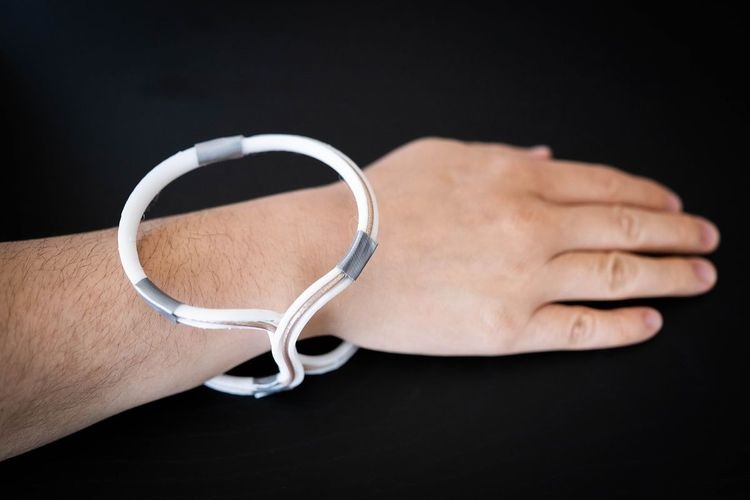Metamaterials to Make MRI Scans Faster, Cheaper, and More Accurate
Posted on 29 Aug 2024
Magnetic resonance imaging (MRI) has revolutionized how clinicians diagnose and plan treatment for various conditions by allowing noninvasive internal views of the human body. Despite its benefits, the most advanced MRI technology is often inaccessible due to its bulk, rigidity, and high cost, which limits its availability, especially in low-resource and remote areas. Aiming to make MRI technology more accessible, engineers are now innovating devices that can enhance the speed, affordability, and precision of scans. They are utilizing metamaterials—structures crafted from common materials like copper, fabric, and plastic designed to control electromagnetic waves and radio frequencies—to improve MRI capabilities significantly.
These innovations are being spearheaded by the Boston University College of Engineering (Boston, MA, USA), where engineers have introduced tools like resonators that adjust magnetic fields and wearable devices resembling jewelry that reduce scan interference. Their work includes developing "intelligent metamaterials" to speed up MRI scans and a tunable helmet designed to refine brain imaging and reduce the duration of MRI scans. These advancements are detailed across various recent journal publications. One of the latest papers, published in Advanced Science, explores wearable metamaterials that conform to body parts such as elbows or knees. The research includes devices that envelop the ankle like a brace, enhancing imaging precision. These tools use computationally designed helical resonators, constructed from plastic and thin copper coils, that fine-tune MRI magnetic fields. This technology not only boosts the signal-to-noise ratio, enhancing image clarity by minimizing background electromagnetic noise but also employs sophisticated algorithms that perform rapid 3D scans to determine optimal resonator arrangement using circle packing principles. These principles ensure that the coils are compact and effectively positioned.

Furthermore, these designs can resonate at specific frequencies and are incorporated into comfortable, wearable cuffs. Another study in Advanced Materials introduces a novel approach using coaxial cables—commonly used for internet connectivity—which are ideal for carrying and insulating high-frequency electrical signals. Researchers have developed lightweight, fabric-based wearable metamaterials that position these cables close to the scanned body part, such as the knee, enhancing the proximity and effectiveness of the MRI. Advancing their research further, in a publication in Science Advances, the team showcased a wireless, body-hugging metamaterial that passively enhances MRI signals. This design uses coaxial cables configured into freestanding cuffs without the need for fabric, optimizing signal-to-noise ratios for clearer images. These elegant structures, resembling modern art or custom jewelry, have been proven to significantly enhance the quality of MRI scans of the spine, wrist, and even individual fingers, demonstrating their potential to transform MRI accessibility and effectiveness dramatically.
“Our recent designs demonstrate several strategies for using metamaterials to boost MRI using low-cost materials, which we hope will be translated into technologies that allow more patients around the world to benefit from MRI,” said Xin Zhang, a BU College of Engineering distinguished professor of engineering, who is leading the team that hopes to expand access to MRI scans, making them faster—and cheaper.
Related Links:
Boston University College of Engineering














